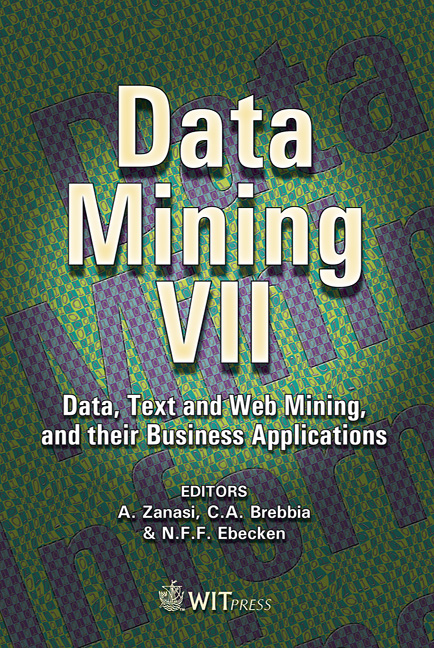A Neural-networks Associative Classification Method For Association Rule Mining
Price
Free (open access)
Volume
37
Pages
10
Published
2006
Size
445 kb
Paper DOI
10.2495/DATA060101
Copyright
WIT Press
Author(s)
P. Sermswatsri & C. Srisa-an
Abstract
Association rule theory has been used to analyze relationships between data in a large database. It has been applied in various fields including market analysis, customer habit study, detection, classification, clustering and so on. However, it consumes a great amount of time. In the Apriori approach, all frequent patterns are found and then generate association rules from above frequent patterns. However, this approach generates a huge time-intensive query called “iceberg query”. Various researches have been done under the Apriori-like approach to improve performance of the frequent pattern mining task but the results were not as much as expected due to many scans on the dataset. This research aims to propose a flexible way of mining frequent patterns by extending the idea of the Associative Classification method. For better performance, the Neural-Network Associative Classification (NAC) method is proposed here to be one of the approaches for building accurate and efficient classifiers. In this paper, the Neural Networks Associative Classification method is used in order to improve its accuracy. The structure of the network reflects the knowledge uncovered in the previous discovery phase. The trained network is then used to classify unseen data. The accuracy rates obtained from the datasets show promising results. Keywords: associative classification, association rule, data mining, back propagation neural networks. 1 Introduction The current emphasis in Data Mining and Machine Learning research involves improving the classifier to be more precise and efficient. The important Machine Learning algorithms are Decision Trees [1], Rule Learning [2], Naïve-Bayes Classifier [3], and Statistics [4]. They use Heuristic Search and Greedy Search
Keywords
associative classification, association rule, data mining, backpropagation neural networks.





